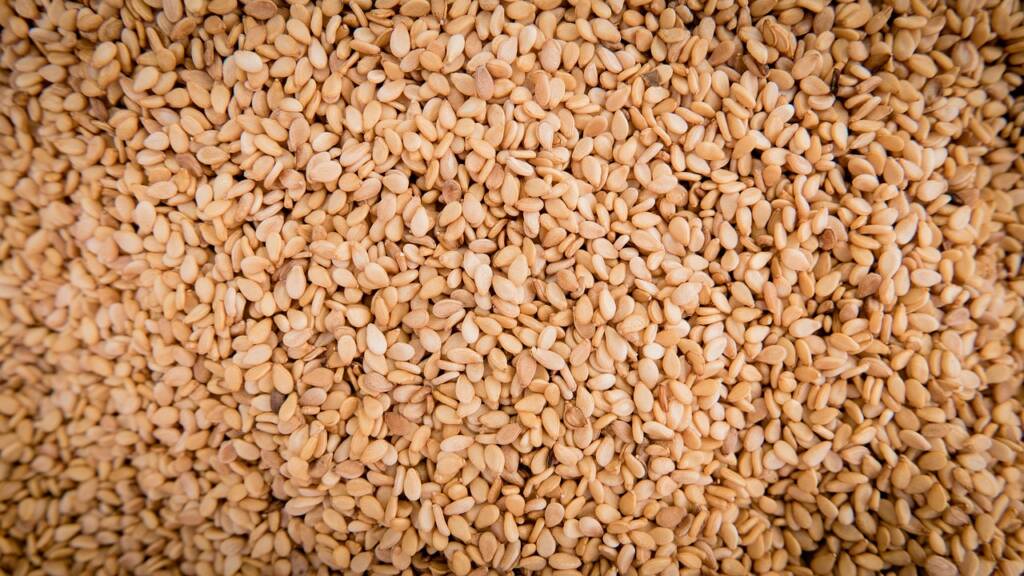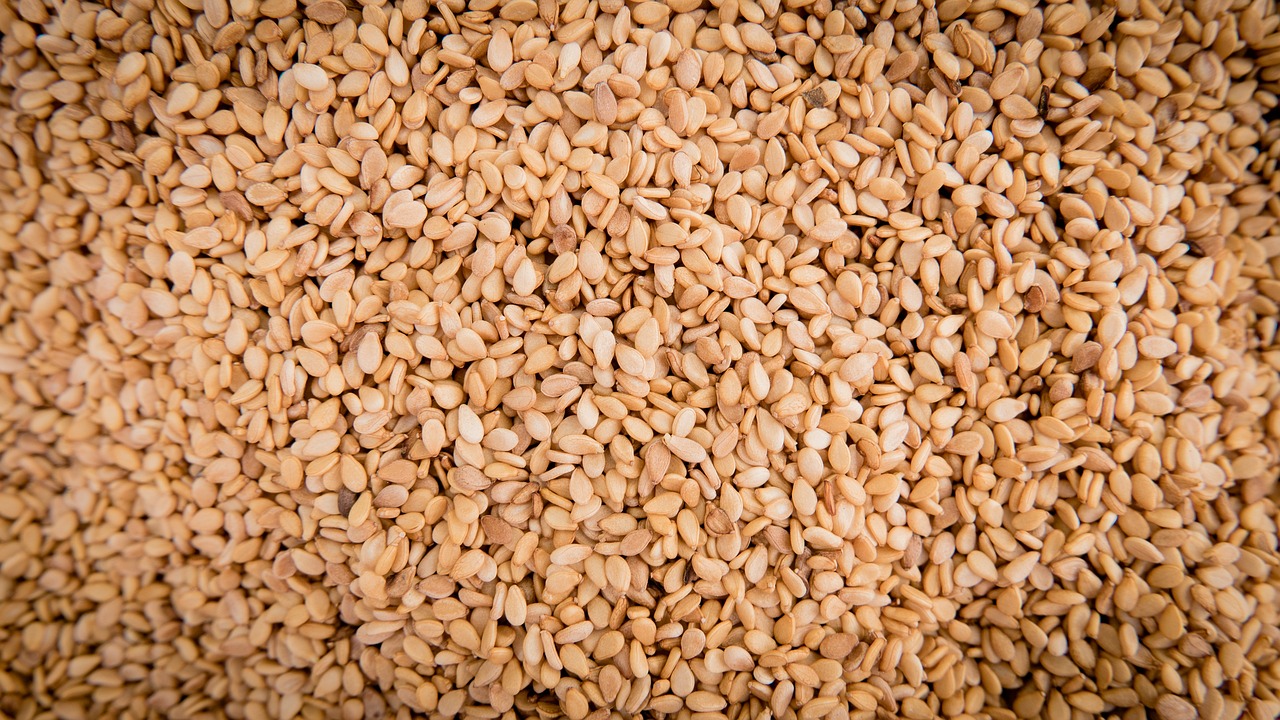Sesame seeds, derived from the sesamum indicum plant, have been a staple in culinary and traditional medicine practices for 1000 of years. These tiny versatile seeds pack of punch when it comes to flavor, nutrition, and health benefits. In this article, we will explore the various uses and extensive health benefits of sesame seeds. All types of seeds play crucial role for optimal wellness. If you want to gain information on pumpkin seeds, then read this article, https://sparklinglifestyle.in/pumpkin-seeds-energy-booster-lower-blood-sugar-and-pressure/#
Introduction on Sesame seeds:
These seeds are one of the oldest cultivated oil seed crops in the world, with a history dating back over 3000 years. Moreover, they are native to Africa, but have spread to various parts of the world. In addition, these seeds come to various colors, including white, black, and brown, and they have their distinctive nutty flavor and delicate crunch. Furthermore, these seeds are a crucial ingredient in many global cuisines and are also using for their oil, which has culinary medicine and cosmetic applications.

Nutrient composition of sesame seeds:
To appreciate the value of these Seeds in our diet. Let us delve into the nutrient composition.
1 serving = 28 grams of seeds provide, around 160 calories, 5-gram protein, approximately 14-gram healthy unsaturated fats, roughly 7 grams carbohydrates, about 4 grams fiber, Additionally, these seeds are notably high in vitamin B-1 (Thiamin), B3 (niacin) and vitamin E. Moreover, they are rich in essential minerals including calcium, iron, magnesium, phosphorus, and zinc. Furthermore, these seeds contain natural antioxidants, such as sesamin and sesamol, which help protect cells from oxidative damage.
Culinary uses of sesame seeds:
These seeds are a versatile ingredient uses in numerous culinary applications, adding both flavor and texture to dishes. Here are some popular ways to incorporate sesame seeds into your meals. For example,
Tahini: Tahini is a paste made from ground sesame seeds. It is a key ingredient in Middle Eastern dishes like hummus and Baba ghanoush and serve as a base for salad dressings and sauces.
Sesame oil: Sesame oil derived from seeds is widely used for cooking, especially in Asian cuisines. It imparts a rich, nutty flavor to stir- fries, noodles, and dressings.
Bread and Baking: These seeds can be sprinkled on top of bread and baked goods before backing to add a delightful crunch and a hint of nuttiness.
Sushi: They are often used to coat the outside of sushi rolls, adding both visual appeal and texture.
Salads: These seeds make an excellent addition to salads, enhancing that taste and providing a satisfying crunch.
Snacks: Roasted these seeds can be enjoyed as a snack on their own or mixed with other nuts and seeds in trail mix.
Health benefits of sesame seeds:
Beyond their culinary appeal, these seeds offer range of health benefits, making them a valuable addition to a balanced diet. For example,
Heart health:
Healthy fats: These seeds are a rich source of monounsaturated and polyunsaturated fats, which are heart healthy fats that can help reduce the risk of cardiovascular diseases and prevent you from heart stroke.
Antioxidants: The antioxidants in these seeds such as sesamin and sesamol, have a protective effect on the heart by reducing inflammation and oxidative stress.
Lignans: These seeds contain lignans, which may help lower bad cholesterol (LDL) levels, reduce triglycerides and improve overall heart health.
Bone health:
Calcium: These seeds are exceptionally high in calcium, which is vital for maintaining strong bones and preventing conditions like osteoporosis.
Magnesium: The magnesium content in these seeds help the body absorb calcium, further supporting bone health.
Digestive health:
Fiber: The dietary fiber in sesame seeds promotes healthy digestion by preventing constipation, reduce gas, acidity, bloating, indigestion and supporting regular bowel movements.
Skin health:
Vitamin E: Sesame seeds are a good source of vitamin E and antioxidant that helps protect the skin from the damaging effects of UV rays and aging.
Sesame oil: Applied topically sesame oil can moisturize and smooth the skin, making it a popular ingredient in skin care products.
Blood sugar control:
Low glycemic index: Sesame seeds have a low glycemic index, which means they have a minimal impact on blood sugar levels, improves insulin sensitivity, which consumed in moderation. I shot me, or what happened to me. Sesame seeds are good source of protein, which is necessary building block for your body, which helps you to regulate your blood sugar level.
Anti-inflammatory properties:
Sesamol and Sesamin: The natural compounds sesamol and sesamin found in sesame seeds possess anti-inflammatory properties, potentially reducing the risk of chronic diseases associated with inflammation.
Nutrient density:
Vitamins and minerals: Sesame seeds are rich in essential vitamins and minerals. They provide a nutrient- dense source of energy and overall health support.
Allergies and precautions:
While Sesame seeds offer numerous health benefits, its essential to be mindful to potential allergies and precautions:
Allergies: Some people may be allergic to sesame seeds, which can lead to symptoms like itching, swelling or difficulty breathing. If you suspect an allergy, seek medical attention promptly.
Moderation: Like all calorie-dense foods, sesame seeds should consume in moderation to avoid excessive calorie intake, which can lead to weight gain.
Digestive sensitivity: If you have a sensitive digestive system, the high fiber content in sesame seeds might cause discomfort. In such cases, start with smaller quantities and monitor your body’s response.
Conclusion:
Sesame seeds are not only a delightful addition to a wide range of dishes, but also for many of health benefits. In addition, whether you enjoy them for their heart healthy fats, bone strengthening minerals or skin nourishing properties, sesame seeds have on their place as a nutritious and versatile super food. As with any dietary addition, it is crucial to incorporate them sensibly into your diet. It is necessary to paying attention to potential allergies and your body’s individual needs. By doing so, you can savor the unique flavor and embrace the health benefits that sesame seeds have to offer.



Leave a Comment